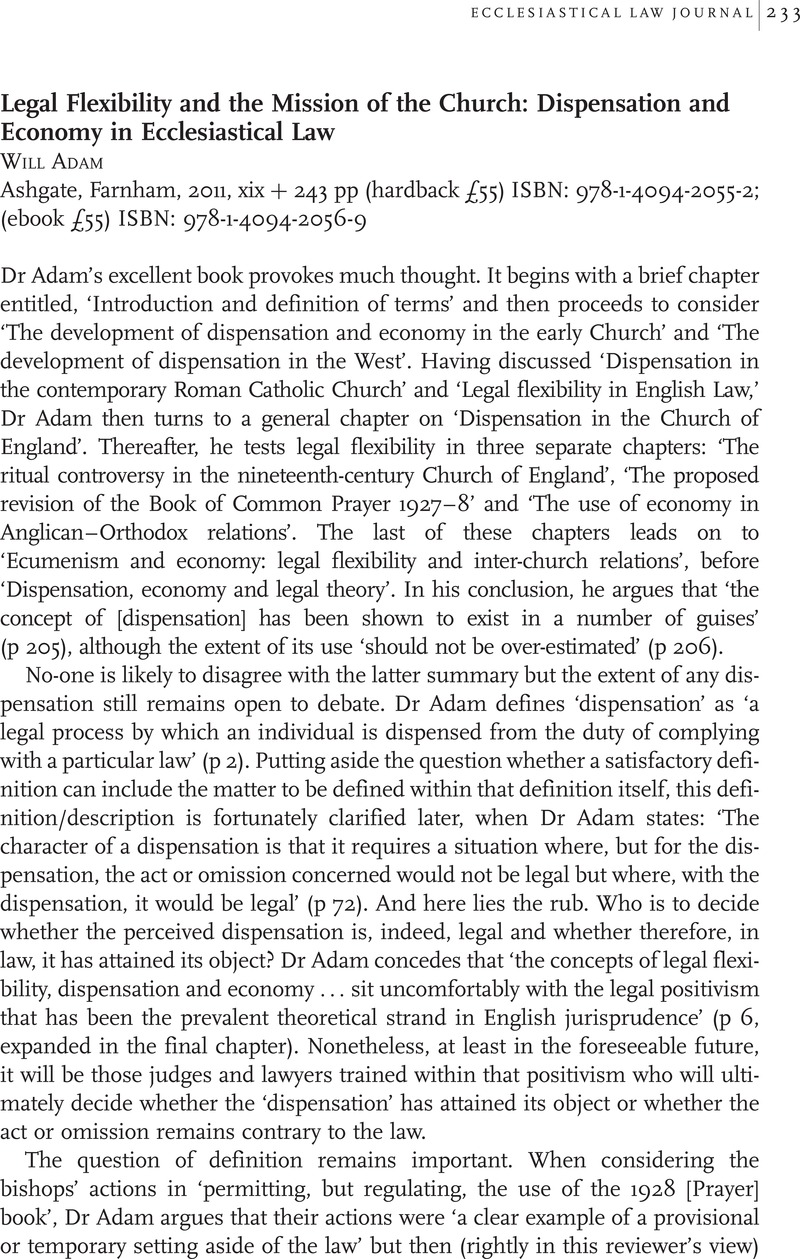No CrossRef data available.
Published online by Cambridge University Press: 10 April 2013

1 I do not know whether the Ecclesiastical Judges Association still has in its possession a paper entitled ‘Aumbries: memorandum by the Chancellor of Newcastle’, which refers to a case where in reliance upon the above national policy the Bishop of Newcastle purported to license an aumbry where a faculty had already been refused by the consistory court. When parishioners applied to the court for the removal of the aumbry the Chancellor made no order, on the grounds that it was a matter for the bishop and not the court. In the Memorandum the Chancellor defended his position on the grounds that he might otherwise condemn the actions of his own bishop in the latter's absence. He nonetheless added that he would have to deal with the legality of any reservation of the Holy Sacrament if any future application were to be made for a faculty for an aumbry.
2 S Neill, Anglicanism (Harmondsworth, 1960), pp 397–398.
3 In this regard it may be worth noting that the authority to permit memorials in the shape of a cross or heart is not delegated to incumbents in the Diocese of Oxford because such memorials have in the past proved to be unsafe. Nonetheless, after due enquiry and advice from the Diocesan Advisory Committee, they may be, and are, permitted by the current chancellor by faculty.